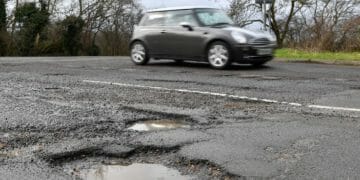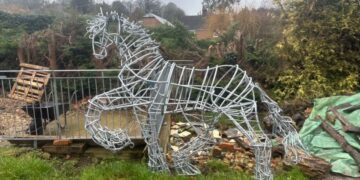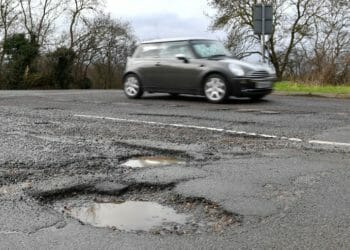
Hundreds of fires were started deliberately in Cumbria during the first coronavirus lockdown, figures reveal.
The National Fire Chiefs Council said it was “shocking” fire services across England had to respond to arson call-outs at a time when they were helping deliver food and medicine to the most vulnerable.
Home Office data shows the Cumbria Fire and Rescue Service responded to 200 deliberate fires between April and June – an increase of 106 per cent on the 97 between January and March.
The figures include all fires thought or suspected to be intentional, including arson, and others such as bonfires and grassfires.
There was one non-fatal casualty from deliberate fires in Cumbria.
Fire crews in Cumbria also had to deal with 145 non-fire incidents between April and June. Most commonly, the Cumbria Fire and Rescue Service responded to road traffic collisions, which accounted for 37 incidents.
Nationally, 239 non-fatal casualties from deliberate fires were recorded between April and June – along with eight deaths.
Fire and rescue services across England attended more than 20,000 deliberate fires during these three months, during which the toughest COVID-19 restrictions were imposed.
This was over 50 per cent more than they attended between January and March, and coincided with a period when firefighters were delivering food and medicine and giving support to the police and ambulance services.
NFCC chair Roy Wilsher said: “During these unprecedented times, the fire service is working incredibly hard to ensure the safety of communities across the entire UK, doing their upmost to protect the most vulnerable.
“However, it is shocking and unbelievable that we have seen a rise in deliberate fires, which results in additional pressure on already stretched resources.
“Attending a deliberate fire is time away from attending other life-threatening incidents and carrying out other vital work.
“Arson is a criminal act and fire services will work with the police in a bid to hold these people to account in a bid to see them successfully prosecuted.”
There was an 11 per cent decrease in deliberate fires between April and June compared to the same period last year.
The majority of these during lockdown – both nationally and in Cumbria – were secondary fires, which are usually considered less serious.
With people spending more time at home, the NFCC is urging them to employ fire prevention methods to allow fire and rescue services to respond effectively to emergencies.
Mr Wilsher added: “Fire services have committed to providing support to other emergency services during this pandemic.
“Bringing down the number of preventable fires will mean they have more capacity to support the most vulnerable in their communities, while ensuring they maintain their emergency response.”
The Home Office said it was grateful for the tireless efforts of firefighters across the country, particularly for their bravery and commitment during this pandemic.
A spokesman said: “Deliberate fires needlessly waste firefighters’ precious time and resources and enforcement action can be taken against those responsible.”































